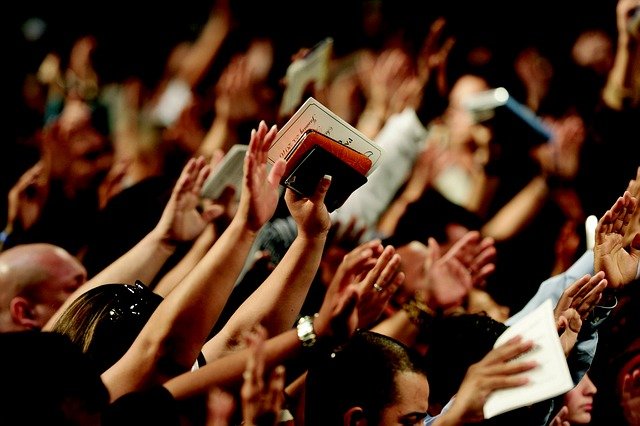
I recently looked at a YouTube video by a group called ReformedWiki that said we should not sing songs by Hillsong and Bethel in our churches. Their main reason is that they don’t consider Hillsong and Bethel to be genuine churches, primarily because of their doctrines.
Now, I agree that there is something terribly wrong with Hillsong and Bethel CHURCHES (especially Bethel). They follow erroneous Word of Faith teachings, and they have been linked to numerous scandals. Those churches are problematic. But does this mean we should reject their MUSIC?
We will answer this question in this article. But let’s address some important underlying issues first.
Main Points
-
- Songs should be judged on their lyrics, not who wrote it.
- Worship leaders need to be more knowledge in the Word to select worship songs.
- Pastors should teach their people to study the scripture so they can discern truth and error.
DOWNLOAD FREE CHAPTERS FROM OUR NEW BOOKS
Criticism must be fair and scriptural
There is nothing wrong with criticizing a church or a doctrine or even a teacher. There are lots of false doctrines, weird churches and wolves out there. But criticism must be fair and based on scripture, otherwise you just end up criticizing someone because they are different from you. It does not take long to figure out that to ReformedWiki, their precious Reformed Theology is more important than scripture. They are probably just as bad as the cults they criticize.
These individuals typically only allow old hymns in their churches. Again there is nothing wrong with hymns. Those old hymns are wonderful songs with strong Biblical content. But are we to limit ourselves to songs written hundreds of years ago?
In the video, someone asked the question,
“Some of the old hymns were written by song writers who had questionable theology, yet you have no problem singing those songs in your church. Why do you have a problem with Hillsong and Bethel?”
It’s a very valid question. Here is how they answered it:
“Well you know, that was then and this is now. When we sing Hillsong music, we have to pay copyright royalties to the song writers, and Hillsong uses this money to fund their church operations.”
Notice how they changed their tune when faced with their own double standards. Not only do they have a clear double standard, they have a gross misunderstanding of how royalties work. Royalties are collected by an agency such as ASCAP or BMI that represents the artist, and typically they collect royalties from media houses such as television studios and radio stations. Churches are exempt from paying royalties for singing religious songs during regular worship services.
Pastors should teach their people to discern truth
Another reason the ReformedWiki folk discourage Hillsong music is because they think singing those songs in church provides a gateway for their congregants into Hillsong churches. I don’t know what is happening in your church, but I think that is such a minority problem. I dare say the real reason your congregants are not grounded is because you are not teaching the word of God in your church. It is the word of God that acts as a foundation (Matthew 7:24).
Reformed churches are notorious for teaching theology over scripture. They typically do not like the idea of teaching their people to handle the word of God, because they know if people are too knowledgeable of scripture, they would start questioning reformed theology. So they rather dictate to their congregants what to do and what not to do. That does not work in this day and age. People need to be educated how to study scripture and how to discern whether a song has scriptural lyrics or not.
Worship leaders should be knowledgeable in scripture
One of the biggest problems in churches today is that worship leaders and Christian song writers are so devoid of any scriptural knowledge, that modern gospel songs end up being shallow and meaningless. This is why they don’t endure. Many Christian artistes write songs based on spiritual experiences and catchy phrases used by their pastor. Congregants are consequently given a substandard worship experience in church.
We must remember that singers are ministers of the Word, and they should be held to the same standard as preachers and teachers. They should be able to listen to a song and determine if the song is scriptural and uplifting. But unfortunately many of them can’t do that. They choose songs simply because their favorite artiste produced it. They need to be more discerning than that.
Judge songs by their lyrics
We should judge a song in the same way we test a doctrine. We look at the lyrics and see if it lines up with scripture. Take away the music, the melody and the beat and focus on just the words. If you spoke those words to God, would that glorify Him? Would it convey a scriptural message?
It does not matter who wrote it. Many of the Psalms were written by a man who committed adultery and murder. Ecclesiastes was written by an idol worshiper. It’s the content of the song that matters. We ought to teach believers that man is fallible and we should never follow man without question. We should test everything based on the word of God, including song lyrics.
Personally I detest Bethel music. I cannot think of a single Bethel song that I like. I have barely anything good to say about Bethel. Maybe they have songs with scriptural lyrics, but I obviously have not heard it. There are some Hillsong songs that I find to be exceptional worship songs. Some examples are What a beautiful name, So will I, Shout to the Lord, Still, and others.
Conclusion
The real test of a song is not who wrote it. It is the content of the lyrics. Are the words scriptural and glorifying to God? The style of the music is a matter of taste. I would strongly recommend some songs by Hillsong (but not all). I personally would not recommend anything from Bethel. But remember, I don’t know all the songs there are. It is up to the worship leader and the listeners to test the lyrics in a song and determine if it is suitable to sing in church.
Array






